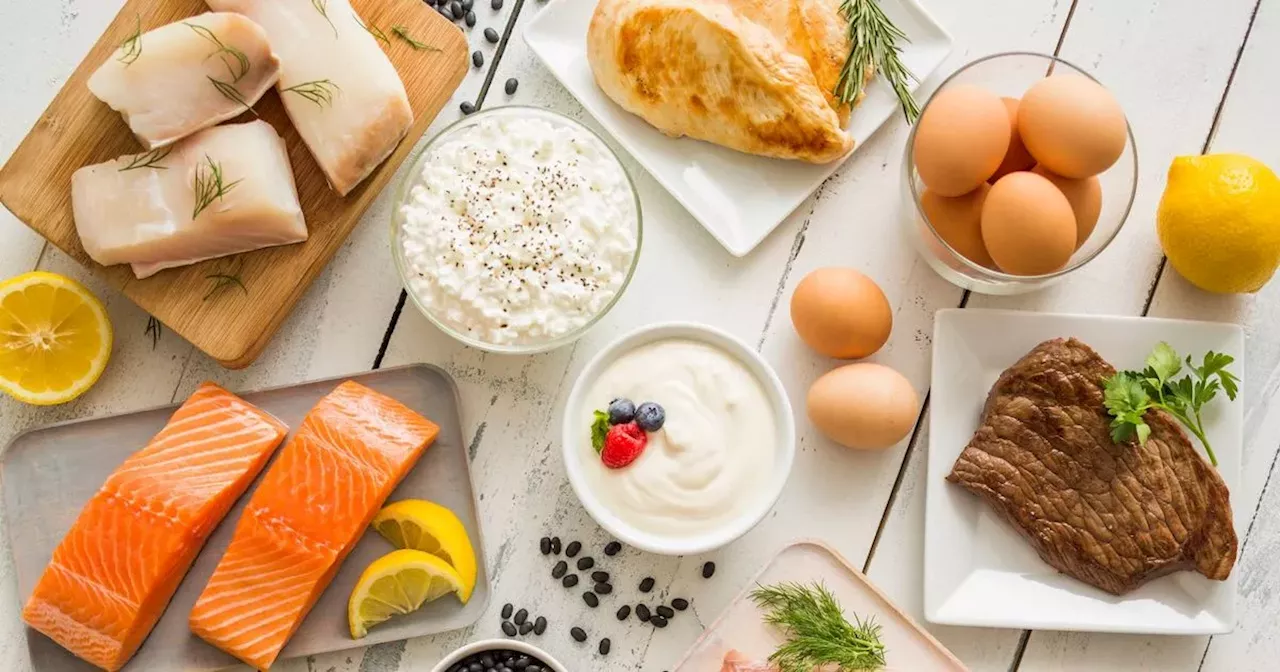Discover why potassium is essential for your well-being. Learn about its functions, symptoms of deficiency, seasonal variations, and food sources to ensure optimal levels.
Potassium, an essential macronutrient, plays a vital role in numerous bodily functions. NHS guidelines recommend adults consume 3,500mg of potassium daily. This mineral supports blood pressure regulation, aids in nutrient transport throughout the body, and ensures the proper functioning of nerves and muscles. While a single banana provides only 11% of the recommended daily intake, numerous other foods are excellent sources of potassium.
Potassium is a key electrolyte, a mineral present throughout the body that maintains crucial functions like fluid balance and heart health. Dr. Lucy Williamson, a nutritionist and gut health expert, highlights that good potassium levels are also linked to improved bone health, particularly crucial during adolescence before peak bone density is reached and after menopause when osteoporosis risk increases. Insufficient potassium intake can lead to an imbalance, potentially causing symptoms such as fatigue, anxiety, difficulty concentrating, low energy, muscle cramps, headaches, PMS, and impaired athletic performance, according to Artah founder Rhian Stephenson. Electrolytes, particularly potassium and magnesium, are also essential for long-term cognitive health. Recent studies suggest that these minerals may enhance cognitive performance in individuals with dementia and Alzheimer's disease, as concluded by Stephenson.Research indicates that potassium levels fluctuate seasonally, naturally higher during winter compared to summer. Factors like alcohol consumption, caffeine intake, reduced leafy green consumption, and increased consumption of ultra-processed foods can also affect potassium levels, as noted by Stephenson. Consulting your doctor is advisable if you have concerns about your electrolyte balance and overall mineral intake.A diet rich in potassium-rich foods can help maintain optimal levels. Fruits like bananas, melon, grapefruit, pear, papaya, mango, squash, tomatoes, and avocado are excellent sources of soluble fiber, beneficial for regulating gut and bowel movements. Fiber-dense foods promote satiety, reducing the likelihood of excessive snacking on unhealthy options.Prioritizing fresh vegetables, particularly spinach and broccoli, is crucial for maintaining healthy potassium levels. Root vegetables like beetroot and parsnips are also high in potassium, perfect for soups or as garnishes. Dried fruits such as apricots, sultanas, and figs are another good source. Red meat is a great source of iron, often difficult to absorb from plant-based sources alone (unless consumed with vitamin C). Poultry and fish offer alternative sources of potassium and are suitable options for individuals advised to reduce red meat consumption. Dairy products contribute to iodine intake. Whole grains like oats, incorporated into breakfast cereals and porridge, provide a good source of potassium.Nuts and seeds, especially pistachios, coconut, and almonds, are packed with potassium and make for a healthy snack. Beans and lentils offer additional benefits, including anti-aging and antioxidant properties, along with fiber
POTASSIUM ELECTROLYTES NUTRITION DIET HEALTHY EATING FOOD SOURCES BONE HEALTH COGNITIVE FUNCTION MUSCLE HEALTH
United Kingdom Latest News, United Kingdom Headlines
Similar News:You can also read news stories similar to this one that we have collected from other news sources.
 Brits paying around £2million an HOUR to power up gas-fired power stations amid power shortagesPower shortages meant households paid around £2million an hour to power up gas-fired power stations yesterday.
Brits paying around £2million an HOUR to power up gas-fired power stations amid power shortagesPower shortages meant households paid around £2million an hour to power up gas-fired power stations yesterday.
Read more »
 Unlock the Power of Vitamin K: Essential Nutrient for Health and Well-beingThis article delves into the critical role of vitamin K in maintaining optimal health, outlining its benefits for blood clotting, bone strength, cardiovascular health, and vitamin D absorption. It also explores the recommended daily intake, food sources, and individuals who may benefit from supplementation.
Unlock the Power of Vitamin K: Essential Nutrient for Health and Well-beingThis article delves into the critical role of vitamin K in maintaining optimal health, outlining its benefits for blood clotting, bone strength, cardiovascular health, and vitamin D absorption. It also explores the recommended daily intake, food sources, and individuals who may benefit from supplementation.
Read more »
 Kadyrov's Health Takes a Turn: Chechen Leader Battling Illness Amidst Power StrugglesChechen leader Ramzan Kadyrov, known for his unwavering loyalty to Putin and brutal tactics, is reportedly battling a serious health condition. Recent reports suggest he suffers from pancreatic necrosis, raising questions about his ability to continue leading Chechnya and his role in the ongoing war in Ukraine.
Kadyrov's Health Takes a Turn: Chechen Leader Battling Illness Amidst Power StrugglesChechen leader Ramzan Kadyrov, known for his unwavering loyalty to Putin and brutal tactics, is reportedly battling a serious health condition. Recent reports suggest he suffers from pancreatic necrosis, raising questions about his ability to continue leading Chechnya and his role in the ongoing war in Ukraine.
Read more »
 Unlock the Power of Aloe Vera Juice: Health Benefits and How to Enjoy ItDiscover the incredible health benefits of aloe vera juice, from improving skin health and boosting immunity to aiding digestion and supporting oral health. Learn how to incorporate this versatile drink into your daily routine and experience its nourishing effects.
Unlock the Power of Aloe Vera Juice: Health Benefits and How to Enjoy ItDiscover the incredible health benefits of aloe vera juice, from improving skin health and boosting immunity to aiding digestion and supporting oral health. Learn how to incorporate this versatile drink into your daily routine and experience its nourishing effects.
Read more »
 The Power of Plain Greek Yoghurt: A Gut Health SuperstarDiscover why Greek yoghurt, with its high protein, calcium, and live cultures, is hailed as a gut health powerhouse. Learn how this versatile dairy product can benefit your overall well-being and explore its surprising culinary uses.
The Power of Plain Greek Yoghurt: A Gut Health SuperstarDiscover why Greek yoghurt, with its high protein, calcium, and live cultures, is hailed as a gut health powerhouse. Learn how this versatile dairy product can benefit your overall well-being and explore its surprising culinary uses.
Read more »
 UK's Aging Power Grid Struggles to Keep Up with Wind Power SurgeThe UK's transition to renewable energy faces a critical challenge: its aging power grid is struggling to handle the increasing amount of wind power being generated. The situation is costing consumers billions in grid management expenses as wind energy is often forced to be shut down due to transmission capacity limitations.
UK's Aging Power Grid Struggles to Keep Up with Wind Power SurgeThe UK's transition to renewable energy faces a critical challenge: its aging power grid is struggling to handle the increasing amount of wind power being generated. The situation is costing consumers billions in grid management expenses as wind energy is often forced to be shut down due to transmission capacity limitations.
Read more »
